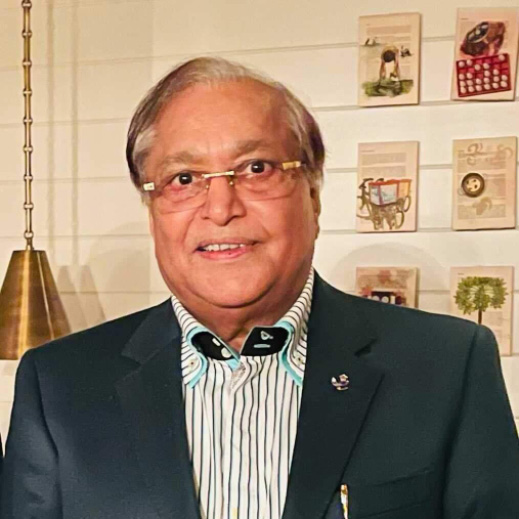Lord Rami Ranger says the documentary was produced to show PM Modi in a bad light.
Lord Rami Ranger, who is a prominent member of the House of Lords of the UK Parliament, on 20 January lodged a protest with the British Broadcasting Corporation (BBC) over its documentary series on Indian Prime Minister Narendra Modi.
In a letter to Tim Davie, Director General of the BBC, Rami Ranger condemned the documentary and raised questions on the sinister timing of the documentary. The Sunday Guardian spoke to Ranger, who is among the most prominent political voices of Indian origin in the UK and has also served as the Chairman of the Pakistan-Indian and UK Friendship Forum. Excerpts:
Q: What was the reason for writing this letter to the BBC?
A: The documentary was designed and especially produced to show the Indian Prime Minister in a bad light. They selected all those people who were anti-Modi. They went on, they kept on repeating a couple of scenes where there was some violence and death which we all regret. They did not show any positive things about PM Modi who has been elected twice, with an increased mandate. The Indian PM has done a lot more for the minorities than any other PM, the Muslims vote for PM Modi, the Muslim women love him for the reforms he is bringing.
Q: You are saying it was a documentary that was produced to target the PM?
A: The timing is very wrong, as my letter indicates, this is not the time. After 20 years, you open an old wound with the intention to reignite Hindu-Muslim hatred. The Muslim leaders have said repeatedly that they want to move on from those tragic events and then BBC decides to release this documentary.
Nothing good was shown in it as to how the government of India is going out of the way to build a better future for the Kashmiris. The removal of Article 370 from Kashmir which has made Kashmir an equal part of India, enjoying all the development which is taking place in India. Why did they not show the record investment is going into Kashmir?
Q: Why have you termed the “timing” of this documentary as “sinister” in your letter to the BBC?
A: It is totally one-sided. The timing was sinister. It has coincided with India assuming the G-20 presidency, we are in the advanced stage of the United Kingdom-India Free Trade Agreement talks and we have a PM of Indian origin at 10 Downing Street.
To re-ignite this two-decade-old thing is not going to bring benefit to anyone; in fact, it will create more hatred between British Hindus and British Muslims in the UK. Already, we had riots in Birmingham and Leicester and this documentary has re-ignited that hatred. BBC will come and go, we Indians have to live together.
I see this is a foreign intervention into India. It was a foreign intervention that divided India into two, made India-Pakistan nuclear adversaries and resulted in three wars being fought between them. BBC should investigate Jallianwala Bagh, they should investigate Tony Blair who was responsible for the Iraq war. The BBC believe that Indians cannot run a country, they don’t believe in our judiciary, our democracy and our Constitution.
The Sunday Guardian has reached out to one of the two producers of the said documentary with a set of questions: 1. Was this documentary commissioned by the BBC and then you started the production? Or was it produced by you and then the BBC bought it? 2. When did the production of this documentary begin and when was it completed? 3. Was there any specific reason for releasing the documentary this month? Why was it released now? 4. As you must be aware, the documentary is being criticized for multiple reasons, including for “being one-sided”. The documentary has, as per the critics, ignored the multiple levels of judicial scrutiny that the accused in Gujarat riots faced. And that is one reason for it being termed by people in both countries as being a “propaganda”. Do you, in hindsight, feel that “disrespecting” the judicial process that was followed in this case is something that should have been avoided? 5. The “diplomatic” document quoted in this documentary is something that was written in 2002. Is it not logical for those who are critical of the documentary to ask why it was not made public by those who had it for the last two decades?
However, no response was shared by the producers till the time the story went to press.

